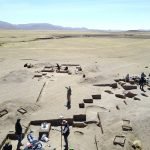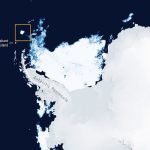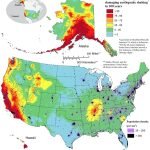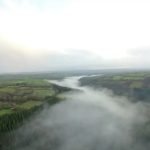A journey of a woolly mammoth through time: Elma’s tale
Once upon a time, about 14,000 years ago, a woolly mammoth named Elma wandered through the lands that we now call Alaska and northwestern...
New tool accurately predicts earthquakes across the U.S.
A team of over 50 scientists and engineers, led by the U.S. Geological Survey (USGS), has delivered a groundbreaking update in our understanding of...
Scientists uncover our earliest ancestors in Germany
In a recent study, a team of scientists in central Germany made a groundbreaking discovery. They found ancient bone fragments at a site near...
Scientists discover the oldest skin fossil
In a remarkable leap forward in our understanding of ancient life, researchers have discovered a fossil that turns back the clock on our knowledge...
New study reveals the true diet of ancient Andeans: Mostly Plants, Not Meat
A team led by a University of Wyoming archaeologist has made a surprising discovery that could change our understanding of early human diets, especially...
The Moon is still shrinking, explaining why it still has landslides
Although our Moon formed 4.5 billion years ago, it’s still evolving. The interior continues to cool and its orbit is slowly changing.
As a result,...
The world’s largest iceberg sets sail for adventure beyond antarctic waters
In November 2023, the monster iceberg A23e finally dislodged from the seafloor after being grounded and stuck there for 40 years.
A series of recent...
How the shape of microplastics affects their journey through the air
Have you ever thought about how tiny plastic pieces, so small you can hardly see them, can travel around the world?
Well, a group of...
Scientists unveil a comprehensive earthquake risk map for the entire U.S.
Imagine having a map that shows where the ground is most likely to shake in the U.S. - a map so detailed it could...
Ancient fossils reveal when complex life flourished in earth’s oceans
In a remarkable scientific achievement, researchers have accurately dated some of the world's oldest fossils of complex multicellular life.
This research, led by a team...










